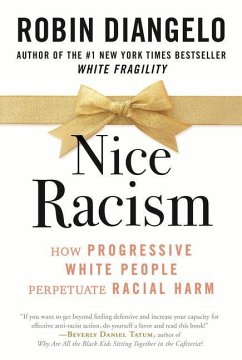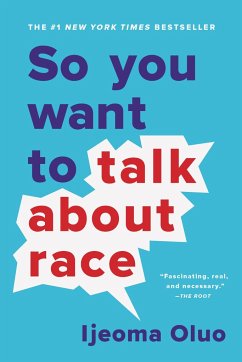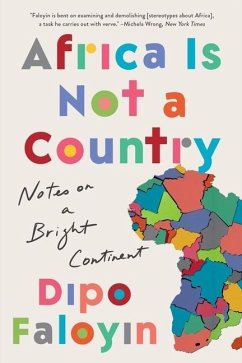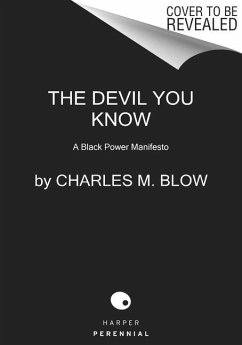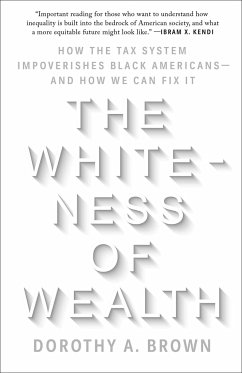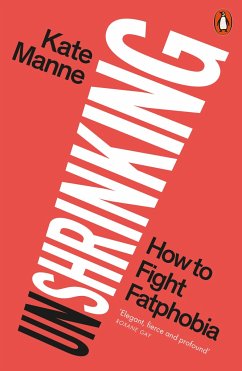"Any attempt to classify this ambitious work, which straddles genre, kicks down the fourth wall, dances with poetry, engages with literary criticism and flits from journalism to memoir to academic writing-well, that's a fool's errand and only undermines this insightful, ambitious and moving project.... An essential meditation on the South, its relationship to American culture-even Americanness itself.... This work-and I use the term for both Perry's labor and its fruit - is determined to provoke a return to the other legacy of the South, the ever-urgent struggle toward freedom." - Tayari Jones, The New York Times Book Review
"In South to America, Perry shows readers that
there is no one archetype of the American South, as she considers everything from immigrant communities to the legacy of slavery to her own ancestral roots." -
Time"Provocative, perspective-shifting.... Rendered in exquisite detail....
In this vibrant, revelatory book, Perry proves herself to be a radiant storyteller...like Zora Neale Hurston, Alice Walker, and Nina Simone before her." -
Oprah Daily"Perry is deft and disciplined, her efforts to situate the beauty, oddity, and terror that mark southern life are
critical and compelling. As a travel writer, she embraces detours with an eye toward discovery.... Perry asks what it means to be tied to a 'land of big dreams and bigger lies' when one is committed to the pursuit of a truth that bursts the nation at its seams." -
Vulture"This history of the American South examines its subject from both personal and sociopolitical perspectives...
[Perry] draws connections between the past and contemporary experience." -
New Yorker"Breathtaking.... Extraordinary.... In the realm of Southern letters it has no real antecedent. It is
that fresh, that vital, that intellectually supercharged, that incandescent." -
Garden & Gun"[Perry] tells rich stories of place while ignoring the borders dividing disciplines and genres, weaving personal experiences with deep history, economics and cultural critique." -
Los Angeles Times"Engrossing.... [Perry] cannily frames her investigation as a travelogue, moving from Appalachia to the Upper South to the Deep South to outliers like Florida and Cuba....
The book's pleasures are many....
Her vignettes spark off the page.... An immersive read." -
Minneapolis Star Tribune"
South to America marks time like
Beloved did. Similarly, we will talk not solely of books about the south, but books generally as before or after
South to America. I have known and loved the South for four decades and Imani Perry has shown me that there is so much more in our region's fleshy folds to know, explore and love. It is
simply the most finely crafted and rigorously conceived book about our region, and nation, I have ever read." -
Kiese Laymon, author of Heavy"[Perry] focuses on a place and reflects on its distinctive relationship to the region's history of slavery and racism,
drawing on her own extensive knowledge of literature, music, art, and folklore, as well as her own family history." -
NPR's Fresh Air"Perry has a knack for the simple observation that showcases the contradictions Americans endure or ignore." -
Washington Post"In the tradition of native daughters and sons returning home and cataloging the journey, Imani Perry undertakes an exploration of and meditation on the many Souths that make up the American southland.
Part pilgrimage, part elegy and clarion call, South to America is wide-ranging, associative and seamlessly woven-an ambitious sweep of history, culture, language. Perry's intellect is capacious. Moving deftly between registers, she proves to be an insightful and compelling guide." -
Natasha Trethewey, author of Memorial Drive"Perry scrutinizes the destination, and plucks threads from its history, its culture, its personality; then she weaves them together to tell a story about the place that reflects, informs, or portends our national psyche. The result is
a compelling, thought-provoking read sure to spark both consensus and debate, but ultimately it serves to illustrate just how much race impacts life in this country." -
Los Angeles Review of Books"Perry's seamlessly crafted work is
a tour-de-force reckoning." -
Literary Hub"Powerful.... Perry lets us hear what the voices have to tell us, so we can make up our own minds about where we are and how far we've come." -
Christian Science Monitor"[A] saturated, gorgeously written, and keenly revelatory travelogue...Perry's southern tour is intimate and encompassing, finely laced and steely, affecting and transformative."
-
Booklist (starred review)"[Perry] melds memoir, travel narrative, and history in an intimate, penetrating journey through the South.... A graceful, finely crafted examination of America's racial, cultural, and political identity. Perry always delivers." -
Kirkus Reviews (starred review)"An elegant meditation on the complexities of the American South-and thus of America-by an esteemed daughter of the South and one of the great intellectuals of our time. An inspiration."
-
Isabel Wilkerson, New York Times bestselling author of The Warmth of Other Suns and Caste: The Origins of Our Discontents"A rich and imaginative tour of a crucial piece of America." -
Publishers WeeklyPraise for
Breathe -
////"Breathe is a parent's unflinching demand, born of inherited trauma and love, for her children's right simply to be possible."
-
New York Times"In
Breathe, Perry offers a lyrical meditation that connects a painful, proud history of African American struggle with a clarion call for present-day action to protect, defend, and celebrate the promise of the next generation." -
Stacey Abrams, founder and chair of Fair Fight Action, Inc."Breathe: A Letter to My Sons is deeply cathartic and resonant for parents attempting to raise their children with intention and integrity. Imani Perry shows deep compassion for both parents and children while incisively underlining the realities of raising Black boys in a country that will inherently betray them. It is a book filled with love and insight for difficult times." -
Tarana BurkePraise for
Looking for Lorraine -
////"A masterly syntheses of research and analysis." -
New York Times Book Review "
Looking for Lorraine is phenomenal. I didn't know how hungry I was for this intimate portrait until now. It feels as though Ms. Hansberry has walked into my living room and sat down beside me. What an honor and joy to read this. The writing is whip-smart, yet lovely and clear-eyed. What gifts this book, Ms. Perry, and Lorraine Hansberry are to the world." -
Jacqueline Woodson, National Ambassador for Young People's Literature and National Book Award Winner for Brown Girl Dreaming"This is one of those books you need to read. Lorraine Hansberry was so dear, so gifted, so black, so singular in so many ways, that to miss the story of her life is to miss a huge part of ours. She left us way too soon, and yet the gift of her presence, so briefly among us, is still felt in the art she left behind. But not only in the art, but in the life. A life at last made comprehensible by this loving, attentive, thoughtful book." -
Alice Walker






